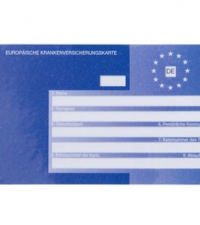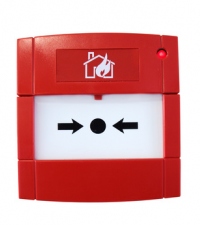Having A Baby Abroad

A pregnancy is always a time of change and upheaval. Having a baby abroad can be even more difficult as you are frequently without the safety net of your friends and family. Even basics like how to find a doctor, birthing procedures, or even how to say baby can be out of reach.
Exploring your options and making your own choices is one of the best tools for feeling empowered in your pregnancy. The choice really is up to you, and realizing that you have control of your pregnancy options can relieve some of the uncertainty. Just like so many things in expatriation, research and planning are the key to a successful pregnancy abroad.
Research
Expat blogs and resources can be the answer to many of your questions about the norms in your adopted country. Expats moms can offer invaluable advice, recommendations, and support. Though it may be your first time, people have been having babies all over the world since the beginning of mankind. Use their experience to prepare yourself and your growing family. There are so many options and decisions to be made, it is best to establish what is expected so you can make the most informed decisions.
-
Questions to ask yourself:
- Who to contact first. Do most people use a primary care physician or a specialist?
- What is the typical diet for mothers and what kind of vitamins are offered. Also consider the proposed diet for newborns.
- What is the status of breast-feeding? Is it common or uncommon? Is it socially accepted or is it discouraged in public?
- Where do you obtain medication? Do you need a prescription for supplements and medicine, or are there things you need that can be obtained over-the-counter?
- Are hospital births most common or are home births? Where is the closest facility and what are there standards? What kind of transportation is necessary to get there?
- What exactly does your health insurance cover? Public or private facilities, or both?
- How does citizenship work for your child? Are there any measures you need to take to ensure they have proper documentation?
Planning for a Birth Abroad
Once you have established the birthing environment in your area, you need to do your best to adjust to what you can, and problem solve in the areas that are difficult. An adjustment for many foreigners seeking medical care is the hands-on or hands-off approach. In America and many Western European facilities, people take an active part in their health. Questions are encouraged and great attention is given to educating the patient about every step that is taken. In other parts of the world, the doctor is the unparalleled expert and they lead the patient through medication and care. Small differences like disrobing in front of the doctor rather than being offered a sheet to cover up can cause discomfort. Find out what is offered in your area and evaluate what would make you most comfortable.
If the differences are too great, you may want to consider an private hospital that supports your native language and offers familiar standards. These are often a more comfortable experience, but are usually much more expensive. Find out what options are included in your health plan and look into purchases more coverage. Pick carefully as much of the stress involved with giving birth can be diminished if you trust your doctor and birthing facility.
Create a Birth Plan
Creating a birth plan can help you understand what is happening every step of the way and gain confidence in the proceedings. A birth plan is basically a communication tool that helps define your options and decisions, and shares them with the people involved in the birthing process. They usually include:
- How you want to manage your labor
- What monitoring devices you would like used
- Whether you want to be induced
- Amount and type of pain medication to be used
- What to do if a Cesarean becomes necessary
- If you want cameras/video or anything else like music
- How the baby be handled immediately after birth
Communicating these choices beforehand can help you realize what is, and is not, possible. By clarifying these decisions with all parties, you can (hopefully) diminish the stress during childbirth. There are resources for doing this online, or you can create your own.
Birthing classes
Classes are common almost everywhere, though they may be quite different from class to class, and especially country to country. Talk to mothers in the area for recommendations, or there are many on-line searches. Lamaze is a popular option and Lamaze International offers a search engine for classes around the world.
Create a Support Group
Being an expat is hard! Being alienated from members of your family and friends is difficult, especially during a pregnancy. This is a time where you desperately need support. If you are not already established in a social circle in your expat life, being pregnant is an excellent gateway to make friends. Child-rearing classes, forums, blogs, doctor offices, and support groups for pregnant women are great places for advice and finding support. Having a baby abroad is also a great excuse for friends and family to visit and help you through process.
Evaluate the costs
It is also important to understand your insurance coverage as different procedures and medications may or may not be covered. Also note the method of payment. In some countries, you will have to pay first (by cash or credit card) and then make a claim from your insurance provider. Check with your hospitals to see if they have a list of insurers with whom they have direct billing arrangements.
Your local Embassy can often give recommendations on preferred clinics or hospitals. Sites like the World Health Organization (WHO) and MD Travel Health can help orient you with updated health recommendations for every country.
Citizenship
Another factor to consider is citizenship. A second citizenship and passport can offer your child greater freedom to travel, less tax liability, access to more affordable health care or college education, and more employment and investment opportunities. Note that not all countries allow dual citizenship, and many countries only allow dual citizenship with a limited number of other countries. Find out about the dual citizenship regulations of your home country and the country you plan to have your baby to find out laws and regulations surrounding citizenship.
- My Life Abroad -
A selection of expat stories

"A fun compulsive read!"
J. Matcham, Amazon
"I strongly advise people ready to live abroad to read this book!"
Patrice, Amazon

 Guide to the European Health Insurance Card
Guide to the European Health Insurance Card  Making a Plan for an Emergency Back Home
Making a Plan for an Emergency Back Home How to Choose Expat Health Insurance
How to Choose Expat Health Insurance APRIL Travel Insurance
APRIL Travel Insurance Cigna Global
Cigna Global William Russell
William Russell The Ultimate Guide: Buying Real Estate as an Expat
The Ultimate Guide: Buying Real Estate as an Expat  Basics to Real Estate Investing for the Long Term
Basics to Real Estate Investing for the Long Term